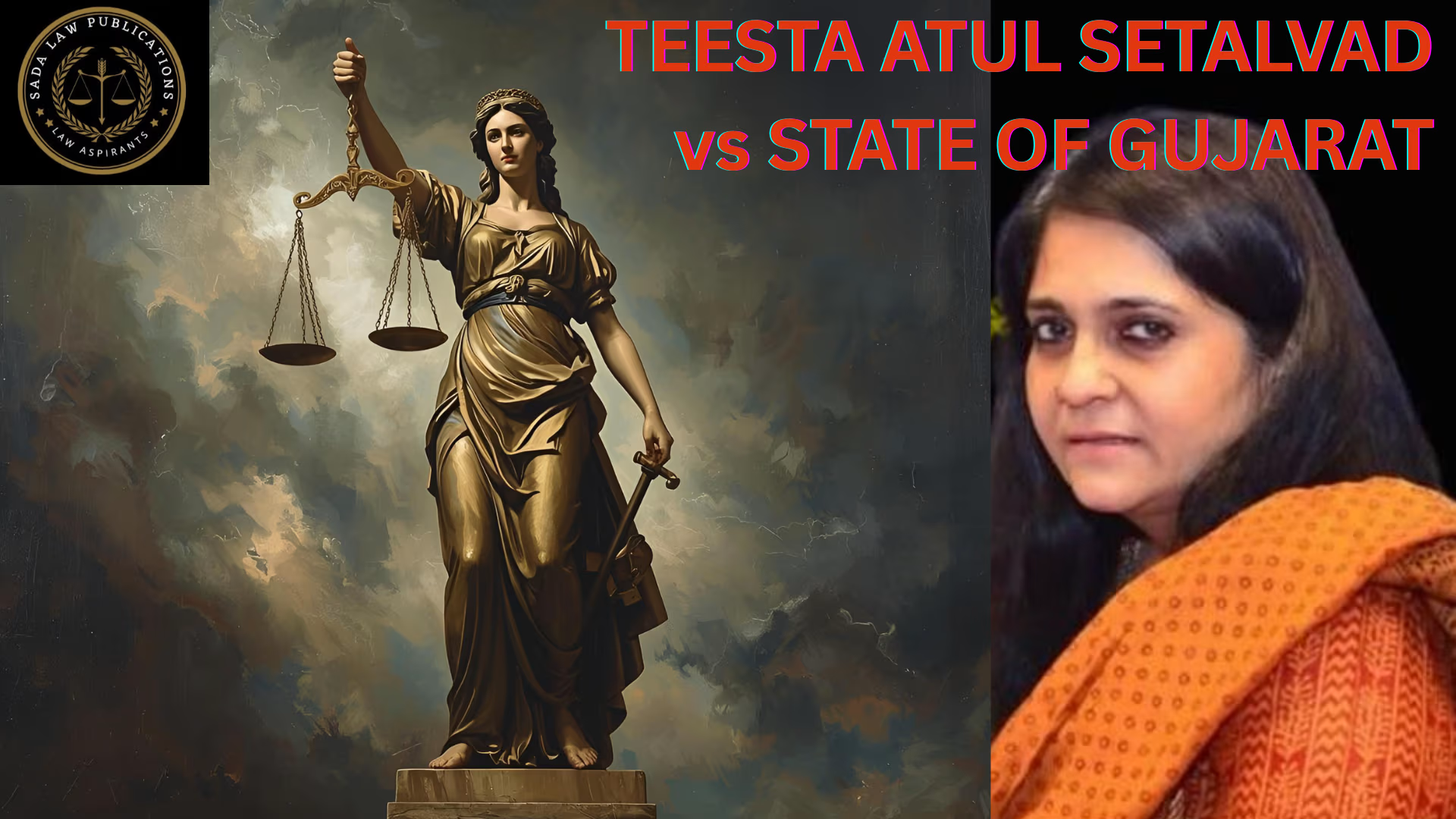Supreme Court Grants Bail to Teesta Setalvad: A Reaffirmation of Bail Jurisprudence
- PRABHAT KUMAR BILTORIA
- Sep 27, 2025

The Supreme Court of India granted bail to human rights activist Teesta Setalvad on July 19, 2023, overturning the Gujarat High Court’s decision. This landmark ruling strengthens bail jurisprudence, upholds personal liberty, and reaffirms constitutional principles in politically sensitive cases.
Introduction
The case revolves around Teesta Setalvad, a noted human rights activist, who was arrested following the Supreme Court’s ruling in Zakia Ahsan Jafri v. State of Gujarat (2022). The complaint alleged that she fabricated evidence to implicate senior officials in the 2002 Gujarat riots.
When the Gujarat High Court denied her bail, she appealed to the Supreme Court, leading to this significant decision.
Facts of the Case
- In June 2022, the Supreme Court criticized individuals for allegedly misusing judicial processes by submitting false evidence.
- A day later, an FIR was lodged against Setalvad under various Indian Penal Code sections, including 468, 469, 471, 194, 211, 218, and 120B.
- She was arrested on June 25, 2022, and subsequently remanded to police and judicial custody.
- Both the Sessions Court and High Court refused bail.
- On September 2, 2022, the Supreme Court granted interim bail, which continued until her appeal was heard.
Issue of the Case
The central question was:
Whether the Gujarat High Court was justified in denying Teesta Setalvad’s bail despite her prolonged interim bail, the documentary nature of the evidence, and no allegations of tampering with the investigation?
Judgment
1. Inadequate Justification by the High Court
The Gujarat High Court observed that a prima facie case existed under Section 194 IPC (false evidence leading to possible capital punishment). Yet, it held that such findings were inappropriate at the bail stage. The Supreme Court found this reasoning contradictory and legally unsound.
2. No Need for Pre-Bail Quashing
The High Court insisted that Setalvad should challenge the FIR under Section 482 CrPC or constitutional provisions before seeking bail. The Supreme Court rejected this, stating it went against established bail jurisprudence.
3. Factors Supporting Bail
- The alleged offenses occurred between 2002 and 2012.
- She was already interrogated while in custody.
- The chargesheet had been filed, and evidence was largely documentary.
- Since her interim bail in September 2022, she had not influenced witnesses or tampered with evidence.
- No request for further investigation was pending.
4. Criticism of Immediate Surrender Order
The Supreme Court criticized the High Court’s sudden directive for immediate surrender despite Setalvad being on bail for nearly ten months.
5. Conditions of Bail
- Bail to continue under conditions set on September 2, 2022.
- She cannot tamper with evidence or influence witnesses.
- Passport remains with the Sessions Court.
- Any violation allows the prosecution to approach the Supreme Court directly.
6. Warning to Subordinate Courts
The trial court was directed not to be influenced by the High Court’s earlier remarks or the Supreme Court’s bail order when conducting the trial.
Conclusion
The Supreme Court’s ruling reinforces the principle of personal liberty in India’s democracy. Key takeaways include:
- The presumption of innocence stands until proven guilty.
- Bail should not be denied solely based on the seriousness of charges if the accused poses no flight risk.
- Courts must avoid conducting “mini-trials” at the bail stage.
This judgment is a strong reminder of constitutional safeguards against judicial overreach in pre-trial detention and a landmark in Indian bail jurisprudence.
Case Laws






